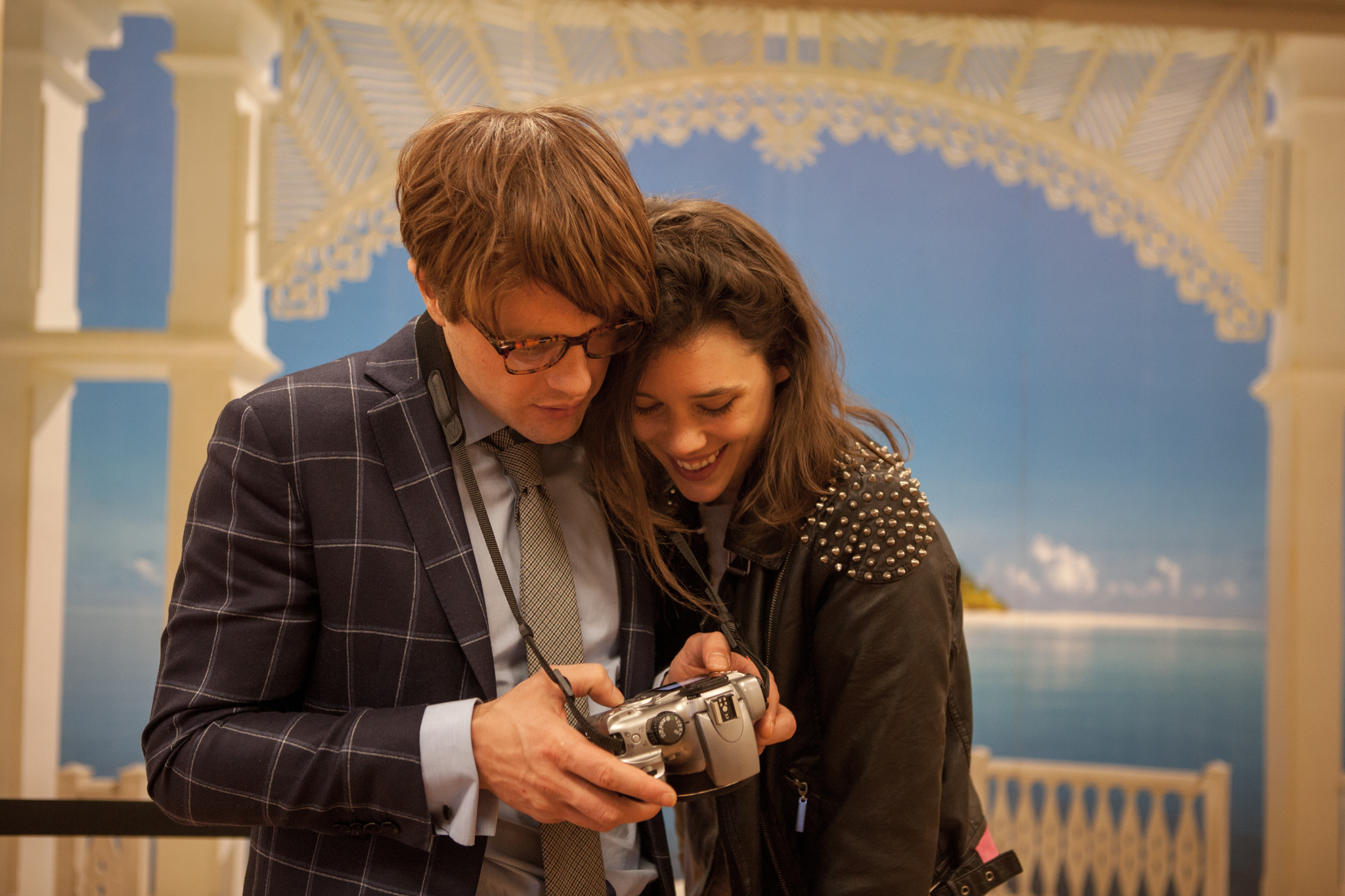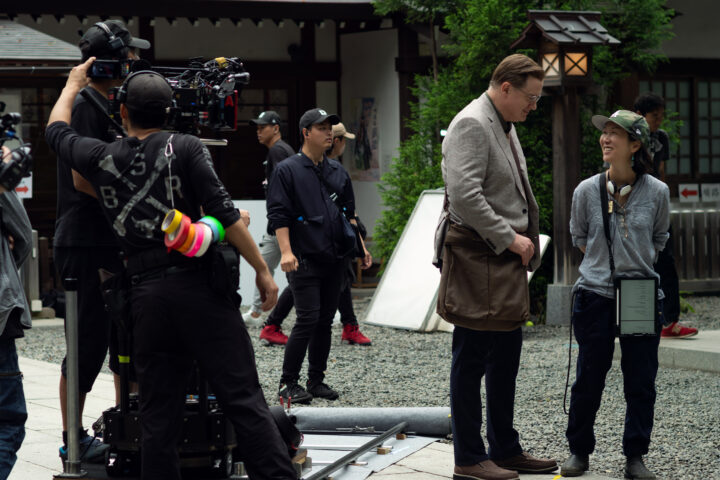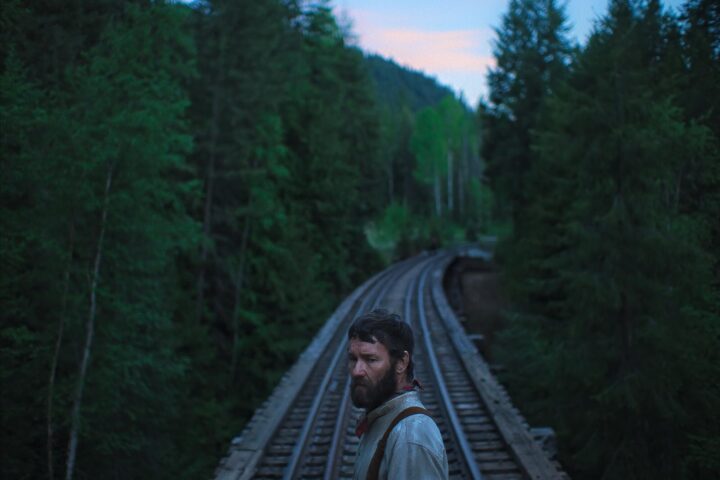2014 wasn’t what you might call a great year in film, though it was a respectable one of solid enough pictures, if only a few truly inspired much passion. And while most of the below won’t be taking home Academy Awards in February, my list of the 11 best movies this year largely avoided finding slots for several “prestige” pictures, but rather included those that moved me, thrilled me, affected me or otherwise got me out of my seat. Truth be told that while others are heralding Boyhood, Birdman and Selma, all impressive enough achievements, I found little passion for any of them, substantive as they were in theme and execution. I respected them; just didn’t love them. The same cannot be said about those on my list, several of which are “small” pictures that say big things, distinctive directorial achievements or multi-level narratives that kept me guessing. Whether it was Brit Marling’s always probing intelligence, a career high from Brendan Gleeson, a black-toned drama about corruption, a terrifying apparition haunting a mother and son, Renee Russo’s smashing turn as a hard-charging news director, the idea that love can transcend space and time, the depiction of a married couple as spoils in a civil war of their own making or John Lithgow and Alfred Molina as husbands in crisis, these 11 pictures, for me, made the year that was 2014.
- I Origins – The year’s most overlooked film, Mike Cahill’s brilliant I Origins wasn’t given a fair shake by cynics who dismissed its blend of science, spirituality, love and our capacity for belief. Michael Pitt is a Manhattan molecular biologist laboring to disprove the existence of God while falling in love with his polar opposite, a free spirited model (Astrid Berges-Frisby), and later developing another relationship with his lab partner, played by the always inquisitive Brit Marling. A movie of rare intelligence—meaning super smart characters who are always refreshingly ahead of the audience—I Origins is impossible to categorize since by turns it is a scientific thriller, love story, a coming to terms with ghosts of the past movie, and a movie that makes a strong case for science before completely upends its thesis only to make a perhaps an even stronger case for feeling and intuition. Does God exist? Should we rely merely on what we can “prove?” Can we trust our feelings? How often in a lifetime can we meet the same soul, if there is such a thing? What is quantifiable? And is that meaningless when we are faced with what cannot be explained? These questions are raised, filtered and refracted back to us through several different lenses—rigorous scientific research and breakthroughs, two great loves, death, birth and then a completely unexpected third act set in India. I Origins is a major movie about big things, wrapped in an unassuming package.
- Calvary – John Michael McDonough’s beautifully written character study of a small-town Irish priest tending to a disillusioned flock was a showcase for the sublime, deep cover work of the great Brendan Gleeson, whose weary man of the cloth comes to question not simply his own beliefs, but the limits of such in a morally compromised world. Dealing with the extremes of adult survivors of abuse, adultery, murder, greed and suicide attempts in a place where everybody knows everybody and nobody wants spiritual deliverance, the picture raises challenging questions about whether religion has any place in a flawed, modern world of people simply trying to do their best, sinners as they may be. It’s also extraordinarily moving in its fateful final scene, courtesy of a fragile Kelly Reilly as the damaged daughter Gleeson left behind.
- A Most Violent Year – A hardboiled saga of capitalism, crime and family circa 1981 New York City, J.C. Chandor’s Lumet-esque tale of a beleaguered entrepreneur and family man (Oscar Isaac) trying to get a leg up in the heating and cooling business while fending off cutthroat competitors who will stop at nothing to put him out of business is an old-school treat, a movie that feels like a throwback and parses out its pleasures with measure, including skillfully built atmosphere and sequences that ratchet up tension, period-specific cinematography, and a superb collection of characters including attorney Albert Brooks and D.A. David Oyelowo, but most importantly a hard-as-nails Jessica Chastain as the woman behind the man, an icy mobster’s daughter who cooks the books, wears the pants and knows her way around a revolver. Chandor reaches potent conclusions about whether business is any place for ethics when corruption rules the day, and young actor Elyes Gabel is memorable as an unwitting casualty.
- Interstellar – Christopher Nolan’s go-for-broke opus pissed a lot of people off, namely those trying to follow, to the letter, the quantum physics and wormholes and interplanetary implications of the time-space continuum, but they missed the point by a country mile. Interstellar, a heady mix of theory and visionary ideas, is at heart a simple movie about love—between two sets of fathers and daughters, long-lost partners across galaxies and for the people of a dying planet. The most ambitious film of 2014, Interstellar went places no other film did—from Earth to far-off planets, to different times decades forward and back, and even behind bookshelves from other dimensions—delivering a punch from stars Matthew McConaughey and Jessica Chastain, who made us believe that across such infinities, love was the only constant (well, gravity figured in there too). A bold, striking, enveloping experience, Nolan’s visual and aural mastery informed every frame of this personal epic.
- The Babadook – As a directing achievement, The Babadook—the very scary tale of a single mother and son dealing with a nightmarish entity—was as distinctive as they come, announcing the arrival of Australian filmmaker Jennifer Kent, whose exacting control over sound and image turned the screws of tension and terror, moment for moment, better than any movie in recent memory. It was also the film featuring the performance of the year from actress Essie Davis as the beleaguered widow trying to understand her tormented son, and herself. After the untimely death of her husband, Davis tries to carry on with their increasingly difficult child, appearing to have behavioral issues exacerbated by a phantom, seemingly sprung from a storybook. But something much scarier about the human condition is going on here. The actress, conveying a multidimensional woman holding it together, falling apart and then facing her darkest, most buried traumas in a truly shocking denoument, was unparalleled by an American counterpart this year. It’s a major performance and if The Babadook was not a horror film per se, she would be garnering serious awards buzz, as she should be. A scene where she pleads with a doctor for sedatives was the highest caliber acting of 2014. A cautionary movie about the pitfalls of burying our darkest traumas and the manifestations of such, this psychological headtrip was one part Friedkin and another Polanski, but unmistakably the mark of a new master in Kent’s firmly auteurist specificity of each building frame. She knew what scared us, and boy did she.
- The Theory of Everything – Charting the tremendous challenges faced over three decades by renowned astrophysicist Stephen Hawking and his long-suffering wife, Jane, upon whose memoirs director James Marsh’s picture was based, The Theory of Everything was the year’s most tender love story. With career high performances from Eddie Redmayne and Felicity Jones, the pictures eschewed a mere biopic of Hawking and his scientific theories in favor of a moving inquiry on how time and change impact a marriage. Redmayne, acting only with his eyebrows to depict Hawking’s ALS-afflicted deterioration, is a revelation. But it’s Jones who brings the story home as the woman who got more than she bargained for, facing the film’s central question—are there limits to love, and if so, how do you cope when you reach them? A heartbreaking film that manages to also be uplifting, The Theory of Everything made Hawking’s science palatable in the simplest of metaphors, while allowing the far deeper mysteries of love to go unsolved.
- Nightcrawler – A seamy, frightening look at Los Angeles as hell, a place where an oddball, “quick study” loner (Jake Gyllenhaal) picks up a camcorder and quickly becomes a cutthroat provider of nightly crime scene video footage to the lowest-rated morning news show in the city, presided over by an unscrupulous news director (Renee Russo). Sharply directed by Dan Gilroy, the moral rot in the film is palpable, a sort of latter-day, West Coast Taxi Driver (although Travis Bickle at least had some semblance of a conscience, noticeably lacking here) where a food chain of con artists feed a sensationalist machine for a nightly buck, their symbiosis shocking, yet symmetrical. Nightcrawler’s 3am, neon LA wonderland of strip malls, grimy fluorescent restaurants, Venice Beach haunts and GPS points en route to lurid midnight destinations in the canyons is both palpable and pungent, an atmospheric playground for a capitalist sociopath and a depraved opportunist.
- Gone Girl – A dark jewel of deception, Gone Girl is the rare big studio picture that happens to actually be about something, novelist turned first-time screenwriter Gillian Flynn essaying her popular book into a shrewd, smart, movie missive on modern marriage and the unpleasant forces that bind us to the ones we love—power and control, rather than love and trust. In a star turn from Rosamund Pike, who deserves full credit for the picture’s $165 million domestic take, Gone Girl’s Amy Dunne is at once a sympathetically scorned wife and a black-hearted, entitled sociopath with a penchant for lies, manipulation and eventually the Grand Guignol. Ben Affleck, as the disappointing husband whom Amy feels “murdered” her long ago, is the object of her diabolical machinations, themselves the kind of narrative surprises that hook you, shake you and then make you take sides. Director David Fincher heaps on the style and the ensemble work—including Carrie Coon, Tyler Perry, Neil Patrick Harris and the wonderful Kim Dickens—was the year’s best. Deconstructing the attractions, resentments and repulsions between long-time partners, Gone Girl pretends, like Amy, to be a police procedural and media circus. But even when solved, one cannot shake the story’s raison d’être – a pitch-black view of marriage as a no-escape institution of imprisonment.
- The Imitation Game – “Are you paying attention?” asks the picture’s opening line—and it would be impossible not to in the case of The Imitation Game, a superbly scripted and mounted examination of the tragic Alan Turing, the brilliant Cambridge fellow and mathematician (and father of the computer) who was recruited by the British government during World War II to crack the Nazi “enigma” code then, after saving an estimated 14 million lives, was undone by his sexuality at the hands of the same government that depended on his mind. Benedict Cumberbatch, playing every one of Turing’s social and personal eccentricities with aplomb, and the excellent Keira Knightley lead the team at Bletchley while developing a believably modern relationship of respect and admiration. Turing, who won the war but lost the very personal battle, comes to vivid life in Graham Moore’s multi-layered screenplay charting three different decades and formative experiences—childhood first-love at boarding school, the thrill of code breaking during the war and a sobering present where his chemical castration ravaged his mind and essence. Director Morton Tyldum’s deftly paced picture unfolds as a thriller (enhanced by Alexandre Desplat’s rigorous score) but ultimately gets at something more barbarous and tragic. The Imitation Game is a complete experience.
- Love is Strange – Ira Sachs’ heartfelt “small” movie is about very big things—the disenfranchising of senior citizens, the stresses of caring for an aged relative, generational disconnects and how they can be mended, religious hypocrisy and the preservation of a long-time love that buckles under the weight of unfortunate circumstances. Manhattanites John Lithgow and Alfred Molina are a thirty-year couple who tie the knot with a loving network of extended family and friends, only to find Molina abruptly fired from his position as a Catholic school music teacher. Unable to afford their longtime Greenwich Village apartment on Lithgow’s meager income and savings (he’s a painter who never quite made it), they reach out to friends and family for lodging and find themselves living separately for the first time. While Molina shacks up with younger neighbors heavily into the gay scene, Lithgow takes up residence in Brooklyn with his nephew and wife, well-played by Marisa Tomei. Time goes on and the deteriorating situation—played without a trace of sentiment—is heartrending. Both actors, long-time, real-life friends, do miracles with the material, convincing in their very different temperaments and common love for each other, never more than when visiting an apartment rental agency looking for any port in a storm.
- Foxcatcher – Bennett Miller’s psychological mystery takes a real-life case—the 1996 John DuPont murder of Olympic gold medalist and wrestler Dave Schultz—and fashions an American crime story about class, alienation and identity. Featuring a never-better Steve Carell as the DuPont heir who is a failure in the eyes of his stern, imperious mother (Vanessa Redgrave) but seeks status by bankrolling (“coaching”) the U.S. Olympic wrestling team at the sprawling family estate, his madness finds full flower in a relationship with down-on-his-luck Olympian Mark Schultz (Channing Tatum), whom he takes under his wing and introduces to a rich and famous lifestyle of drugs, money and perverted friendship (or something more), before discarding him in an allegory about the underclass used as playthings for the 1%. When Mark’s big brother (and also gold medalist) Dave enters the picture, the ensuing results are disastrous. An observant, detached, cerebral picture, Miller’s austere aesthetic supports a near-clinical look at a rising evil unchecked. Carell is appropriately creepy, suggesting reserves of self-loathing, and Channing stuns as the confused giant ripe for manipulation.
And the runners-up:
Leviathan
The Fault in Our Stars
Le Weekend
Fury
Birdman
The Disappearance of Eleanor Rigby: Them
The Skeleton Twins
The Homesman
Boyhood
Whiplash
Chef
The Railway Man
Selma
Beyond the Lights
Lucy
Edge of Tomorrow
Guardians of the Galaxy
And the biggest disappointments:
Unbroken
Rosewater



